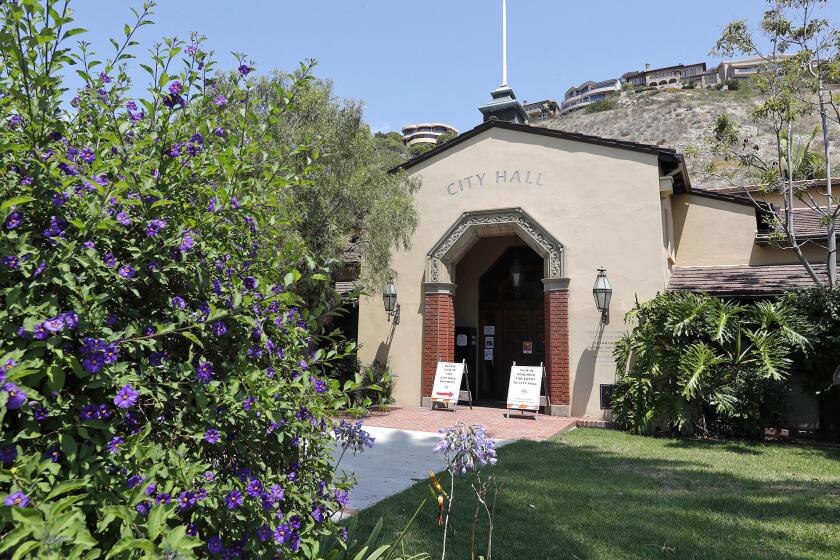Costa Mesa officials set price points for cannabis business licenses and fees, anticipating annual $1M

- Share via
Exactly how much revenue Costa Mesa might generate from retail cannabis businesses under voter-approved Measure Q remains to be seen, but a new fee schedule approved by the City Council this week estimates new permits could earn an annual $668,040.
Council members Tuesday gave the initial sign-off on an ordinance regulating cannabis dispensaries, a plan that has been repeatedly refined by elected officials and the city’s planning commissioners.
The language will come back for a second reading and then be put to a vote that will trigger a 30-day waiting period before becoming law, at which point cannabis proprietors will be able to apply for business permits in Costa Mesa.
For that reason, it was important to not only move the ordinance forward but also set price points for conditional use permits, new marijuana business permits and the cost of employee badges being required by the city.
“I’m glad we’re doing this at the same time,” said Mayor Pro Tem Andrea Marr of the two separate items. “Let’s start formalizing this process so we can get these businesses open.”
Terry Madsen, principal of ClearSource Consulting, shared a proposed fee structure based primarily on the labor costs of city staff to process, review and make determinations on cannabis-related applications.
The schedule not only set costs for new Measure Q businesses but also adjusts permitting fees for businesses currently manufacturing, processing and testing cannabis in an industrial “Green Zone,” in accordance with the previously passed Measure X.
“These fees are service-based fees,” Madsen said. “We’re trying to offset the city’s cost of providing a direct service.”
The weekend events at Costa Mesa’s O.C. fairgrounds closed in March 2020, creating a hardship for vendors and employees alike. Now, one laid off worker has a plan to bring them back.
The fee schedule adopted Tuesday indicates new Measure Q marijuana business licenses would run $19,732, while Measure X operators would be asked to pay $20,380. A conditional use permit would cost retail cannabis operators an additional $18,499, while industrial cannabis businesses would pay $21,529, less than the $27,508 they’ve been charged historically.
Biannually renewing business permits would cost between $16,000 and $17,000, while required employee badges would cost $631 per badge for both Measure Q and X businesses. Modifying permits would also incur minor fees, ranging from $1,300 to $3,099, according to the fee chart.
Madsen said conservative estimates assume 15 new Measure Q businesses coming online and employing roughly 150 employees. Including Measure X permits and fees, the city could stand to generate about $1,065,000 per year — enough to fully recover staff time and resources used to process requests.
Such income would be separate from whatever Costa Mesa earned from taxing the sales of retail cannabis dispensaries, which Measure Q’s ballot language estimated could bring in more than $3 million annually.
At the conclusion of Tuesday’s meeting, council members reflected on the long, complicated journey of bringing Measure Q to life.
“We have taken some time, and it has been a bit of back and forth, but it’s worth it,” said Mayor John Stephens, adding that voters approved Measure Q in a 65% vote.
“We’re going to have legal, safe, regulated products sold by excellent businesses,” he continued. “And we’re going to raise revenue that can be used for generations to come.”
All the latest on Orange County from Orange County.
Get our free TimesOC newsletter.
You may occasionally receive promotional content from the Daily Pilot.











